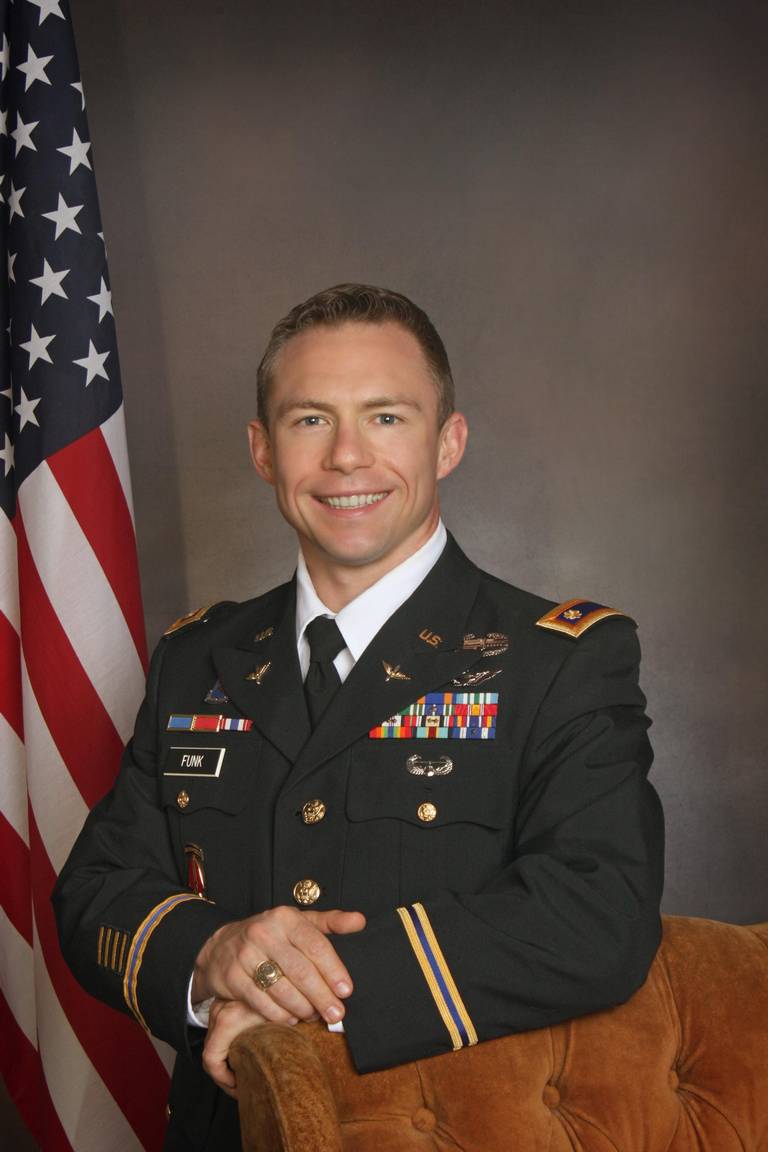Opinion by Joel D. Funk, member, Indivisible Metro East, reprint from Bellville News-Democrat
I’m both saddened and hopeful about the recent events in Afghanistan.
In 2000 both presidential candidates distanced themselves from military interventionism. George W. Bush and Al Gore claimed the military excursions of the 1990s were in the past—no more peacekeeping—no more nation building. Less than a year later we would embark on the longest conflict and nation building experiment in our country’s history. I wasn’t even old enough to vote.
More than a decade later I would travel to Afghanistan for the first of five deployments to that country. I wasn’t there for the beginning, but I was taught and trained by those that had been the first in. Their knowledge and experience allowed us to do the remarkable on the regular.
In 2012 I was hopeful for Afghanistan and optimistic about its future. We were flying missions during the surge. The military had bought into counterinsurgency. The operational tempo was endless. There were more requests for special operations aviation than we could support. We were pushing the Taliban back. The government of Afghanistan appeared to be expanding and solidifying its control beyond the urban areas and into remote regions. It looked like stability, civil authority, and dependable governance could take hold.
When I returned to Afghanistan in 2015 I was concerned. I was no longer in the cockpit knocking out missions and high-fiving the crew members on the ramp after the blades stopped turning. I was on staff and responsible for supporting, overseeing and coordinating most special operation aviation missions in country. Our involvement had changed and so had the country. Forces were reduced. There were less assets. The support nodes had decreased. The Taliban were gaining ground and our ability to respond was growing more complex and difficult with every base closure. The trajectory was no longer towards a successful and peaceful conclusion.
When I returned to Afghanistan in 2016 I lost all hope for the country. The trends I saw in 2015 had only continued. The country was worse. Service members were working hard and trying to do more with less, but as a nation we were disengaged and losing. It was a difficult deployment for me, and I did a lot of self reflection. I took a hard look at what I was doing, what I believed in and how I could best serve my country going forward. That deployment changed me.
The American people by and large never had any skin in the game in Afghanistan. Most Americans can’t find the country on a map and most didn’t even realize we were still at war there until the Taliban moved back into Kabul. Every president until now was content with kicking the can down the road to the next administration as long as casualties remained low and they weren’t seen as “losing” the war.
Routine reports from senior military leaders of “progress” despite losing ground to the Taliban one district and province at a time was apparently enough to keep things going. While the reports didn’t match reality the special operations community continued to get burnt out on an endless merry go round of deployments.
I’m saddened for the people of Afghanistan. We tried. We worked harder than any country ever has to bring peace and stability to that place, but these last few weeks haven’t been especially difficult for me. Afghanistan was already lost to me when I left there in 2016.
There was never going to be peace with the Taliban. There would only be domination. The government of Afghanistan never achieved total control or perceived legitimacy of their entire country. Once the pressure was off, the Taliban started winning and we didn’t have the political will to go all in. The Taliban would only dominate or be dominated. There was no alternative.
The recent events in Afghanistan give me hope, because the spilling of American blood there might be at an end. In business as in politics—and war is politics—it’s important to know when to cut your losses and avoid the sunk cost fallacy. We can now focus more of our efforts as a nation on opportunities and threats that demand our time and sacrifice. Afghanistan stopped being a place worthy of our blood and treasure years ago. It’s time to move on.
You can take issue with my words, but know that we all have to come to grips with our service in Afghanistan and what it means now. This is my story and this is how I rationalize what we did there and how it in part shaped who I am.
I choose to remember my time in Afghanistan as things were in 2012—as a young special operations aviator, newly minted as an air mission commander, flying missions, caring for my team, and taking the world’s most elite operators to and from the target. We gave the people of Afghanistan everything we had and for some it was their very lives.
We didn’t lose the war and we didn’t abandon the people of Afghanistan—those failures reside squarely on the shoulders of the government of Afghanistan.
We did our duty. We did our best. Let’s move forward now—more knowledgeable, more experienced, and less likely to repeat the mistakes of the past. We owe it to those that came before us and to set the example for those that come after.
Joel D. Funk served in five deployments in Afghanistan for the U.S. Army. He resides in Freeburg Township.


